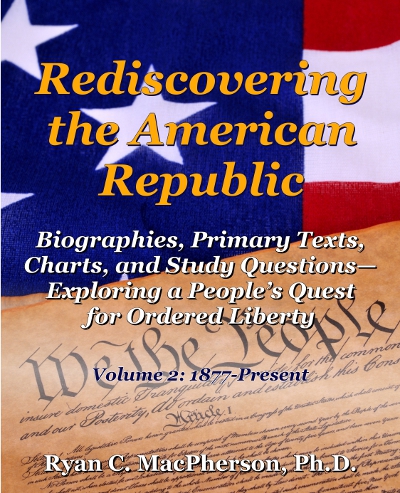Introduction
In response to a smallpox epidemic in the early 1900s, the Commonwealth of Massachusetts enacted a law requiring all adults to be vaccinated against smallpox unless they had already been vaccinated within the past five years or else a physician determined that vaccination was medically counter-indicated for them. The penalty for refusal to comply was a $5 fine (or about $150 in 2020, adjusted for inflation).
Jacobson challenged this law in court, ultimately appealing to the U.S. Supreme Court in Jacobson v. Massachusetts (1905).
Outline of the Court’s Ruling
Police power includes public health regulation: “The police power of a state must be held to embrace, at least, such reasonable regulations established directly by legislative enactment as will protect the public health and the public safety.” 197 U.S. 11, 25 (1905).
Personal liberty is not absolute: “[T]he liberty secured by the Constitution of the United States to every person within its jurisdiction does not import an absolute right in each person to be, at all times and in all circumstances, wholly freed from restraint.” 197 U.S. 11, 26 (1905).
Personal rights are limited to that which does not violate the liberties of others: “It is only freedom from restraint under conditions essential to the equal enjoyment of the same right by others.” 197 U.S. 11, 26 (1905), qt. Com. v. Alger, 7 Cush. 84.
The community has a right to collective self-defense against contagion: “Upon the principle of self-defense, of paramount necessity, a community has the right to protect itself against an epidemic of disease which threatens the safety of its members.” 197 U.S. 11, 28 (1905).
The legislature has discretion to select from among competing medical theories, and the Court shall show deference to the legislature: “Looking at the propositions embodied in the defendant’s rejected offers of proof, it is clear that they are more formidable by their number than by their inherent value. Those offers in the main seem to have had no purpose except to state the general theory of those of the medical profession who attach little or no value to vaccination as a means of preventing the spread of smallpox, or who think that vaccination causes other diseases of the body. What everybody knows the court must know, and therefore the state court judicially knew, as this court knows, that an opposite theory accords with the common belief, and is maintained by high medical authority. We must assume that, when the statute in question was passed, the legislature of Massachusetts was not unaware of these opposing theories, and was compelled, of necessity, to choose between them. It was not compelled to commit a matter involving the public health and safety to the final decision of a court or jury. It is no part of the function of a court or a jury to determine which one of two modes was likely to be the most effective for the protection of the public against disease. That was for the legislative department to determine in the light of all the information it had or could obtain. It could not properly abdicate its function to guard the public health and safety.” 197 U.S. 11, 30 (1905).
The court should nullify a legislative act only if it is either (a) unreasonable; or, (b) a blatant violation of constitutional rights: “[I]f a statute purporting to have been enacted to protect the public health, the public morals, or the public safety, has no real or substantial relation to those objects, or is, beyond all question, a plain, palpable invasion of rights secured by the fundamental law, it is the duty of the courts to so adjudge, and thereby give effect to the Constitution” 197 U.S. 11, 31 (1905).
American democracy requires that the Court regard the legislature’s selection of a medical theory that is consistent with the general opinion of the people as the most reasonable option, even if that theory is not universally accepted and even if that theory might eventually be proven false: “A common belief, like common knowledge, does not require evidence to establish its existence, but may be acted upon without proof by the legislature and the courts. … The fact that the belief is not universal is not controlling, for there is scarcely any belief that is accepted by everyone. The possibility that the belief may be wrong, and that science may yet show it to be wrong, is not conclusive; for the legislature has the right to pass laws which, according to the common belief of the people, are adapted to prevent the spread of contagious diseases. In a free country, where the government is by the people, through their chosen representatives, practical legislation admits of no other standard of action, for what the people believe is for the common welfare must be accepted as tending to promote the common welfare, whether it does in fact or not. Any other basis would conflict with the spirit of the Constitution, and would sanction measures opposed to a Republican form of government. While we do not decide, and cannot decide, that vaccination is a preventive of smallpox, we take judicial notice of the fact that this is the common belief of the people of the state, and, with this fact as a foundation, we hold that the statute in question is a health law, enacted in a reasonable and proper exercise of the police power.” 197 U.S. 11, 35 (1905), qt., Viemester v. White, 179 N. Y. 235, 72 N. E. 97 (NY App. Ct.).
A minority group’s reliance on alternative medical theories does not negate the legislature’s preference of its own preferred medical theory: “Such an answer [if the minority’s alternative theory had to be granted equal status] would mean that compulsory vaccination could not, in any conceivable case, be legally enforced in a community, even at the command of the legislature, however widespread the epidemic of smallpox, and however deep and universal was the belief of the community and of its medical advisers that a system of general vaccination was vital to the safety of all.” 197 U.S. 11, 37 (1905).
Personal liberty does not extend far enough to permit a liberty-favoring minority to overrule a regulation-favoring majority. “We are unwilling to hold it to be an element in the liberty secured by the Constitution of the United States that one person, or a minority of persons, residing in any community and enjoying the benefits of its local government, should have the power thus to dominate the majority when supported in their action by the authority of the state.” 197 U.S. 11, 38 (1905).
Summary
According to Jacobson, the state’s regulation in the name of public health and safety may only be modified in the following three ways:
- Political Decision: The legislature (or governor, in the case of an executive order) could exercise political discretion to change the policy, particularly when public outcry so urges.
- Judical Ruling—Rational Basis: The court could strike down a policy if it fails the rational basis test.
- Judicial Ruling—Fundamental Rights: The court could strike down a policy if it violates fundamental rights.
Twenty-first Century Applications
Jacobson remains a commonly cited standard by the U.S. Supreme Court and appellate courts. Several cases addressing the constitutionality of executive orders amid the COVID-19 pandemic have relied, in part, on the Jacobson standard.
One important development since Jacobson is the Court’s heightened scrutiny jurisprudence for religious liberty and other fundamental rights. Although it is relatively easy for the state’s health regulations to pass the rational basis test (as noted in Jacobson), heightened scrutiny means that the state furthermore must demonstrate—for any regulation that impinges upon a fundamental right—that the state’s policy serves a “compelling interest” and is “narrowly tailored” to pursue “the least restrictive means.” Washington v. Glucksburg, 521 U.S. 702 (1997).
At first it may seem obvious that the COVID-19 pandemic affords the state with a sufficiently compelling interest to impose stay-at-home orders and, when a vaccine has been developed, to compel vaccination. On the other hand, this interest will seem less “compelling” if the population can be shown to have developed immunity without the vaccine. Note, for example, that 60% of Italians in a hard-hit province already have antibodies against COVID. As states reopen, increased exposure to the COVID pathogen might, on the one hand, increase the number of severe cases, but it also might, on the other hand, increase the number of persons who have mild or asymptomatic cases. As those people recover, they will emerge with natural immunity. Depending how these possible effects balance out, there may be sufficient natural herd immunity to render vaccination less compelling.
The “narrowly tailored”/“least restrictive means” test also comes into play. In 1905, vaccines did not involve aborted human fetal tissue as they commonly do today. That means that a strong conscientious and religious objection that was not relevant in Jacobson bears significant relevance today. Religiously pro-life citizens should consult their lawyers about raising this line of defense if the COVID vaccine involves human fetal tissue cell lines. (At present, several of the contenders in the “race” to the COVID vaccine do, but several others do not.)
Meanwhile, Jacobson also has been applied in cases concerning stay-at-home orders, including those that restrict the activities of churches in holding public worship. As the U.S. Attorney General’s office has noted, the broad discretion that Jacobson grants to the state in regulating public health must be appropriately counterbalanced by the fundamental protection of religious free exercise rights afforded by the First Amendment and developed by the Supreme Court’s heightened scrutiny jurisprudence:
- Is the legislation justified by a compelling state interest?
- Is the legislation narrowly tailored to pursue the least restrictive means toward that state interest?
- Does the state provide equal protection to churches in comparison to other similarly situated organizations?
Because the Supreme Court’s “heightened scrutiny” jurisprudence regarding fundamental rights developed after 1905, Jacobson should not have the final word on “public health vs. personal liberty” cases, particularly when the fundamental right to religious liberty also is at stake.
Dr. Ryan C. MacPherson is the founding president of Into Your Hands LLC and the author of several books, including Rediscovering the American Republic (2 vols.) and Debating Evolution before Darwinism. He lives with his wife Marie and their homeschooled children in Casper, Wyoming, where he serves as Academic Dean at Luther Classical College. He previously taught American history, history of science, and bioethics at Bethany Lutheran College, 2003–2023 He also serves as President of the Hausvater Project, which mentors Christian parents. For more information, visit www.ryancmacpherson.com.


